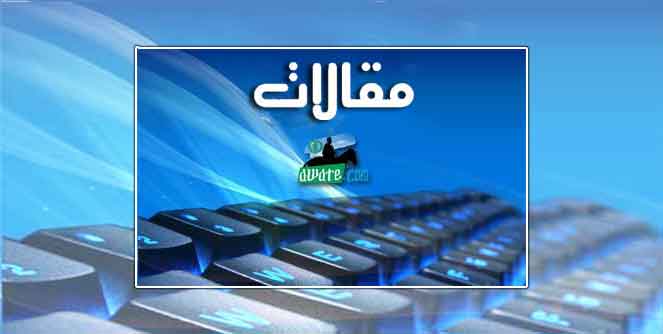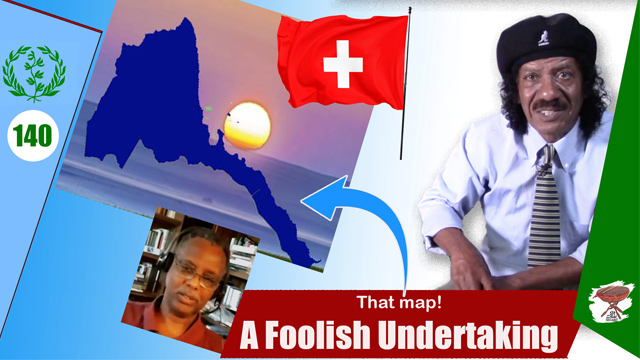Quo Vadis? – ክዎ ቫዲስ? – إلى أينَ من هنا؟

Created with GIMP
Jesus was born in Nazareth*, Galilee, when the Roman emperor Herod ruled Palestine. He was a Roman citizen. Our character of today, Nero the notorious Roman emperor, was born in AD 37, four years after the ascension of Jesus Christ. Nero was only 16 years old when he became emperor and ruled for 13 years. He was so cruel the Roman senate condemned him and soon he committed suicide and died in 68 AD. He was 30.
After Jesus started to preach, Christianity began to spread, and the Roman Emperors considered it a threat to their authority. In reaction, they started to persecute Christians. Later they built the Colosseum on the place where the statute of Nero stood, using forced labor, like in Sawa. Tens of thousands of Christians and Jews, and wild animals were killed as a punishment or to entertain the Romans.
During the reign of Nero, fires destroyed Rome. Many believed Nero was the arson because he didn’t like the architecture of the city and he also couldn’t find a good space to build his palace in the city. He wanted to burn and rebuild it again to his liking after securing a prime location for his palace along the Tiber River, which the Italians call “flavus”. Nero easily blamed the Christians for burning Rome. So, Roma, which I will call Grande Asmara, was a copy of the Eritrean capital city. Don’t believe anyone who tells you Asmara was built by the Italians; it was built by the sweat of our ancestors!
So far, Abi Argen didn’t burn cities physically like Nero burned Rome, but he destroyed the lives of Eritreans and is gloatingly watching Eritrea decay. Batse’e yellan, Aseb yellan…. Similar to Nero blamed Christians for burning Rome, he blames the decay and mayhem in Eritrea on everybody but himself.
The suffering of Christians in the Roman empire continued until around 311 AD when the Emperor Galerius passed an edict to end the persecution.
During the persecution of Christians (according to the Apocryphal Acts of Peter), St. Peter escaped with his life and fled out of Rome. On the road, it is said, he met the risen Jesus and asked him, “Quo Vadis?”
Jesus replied, “I am going to Rome to be Crucified again”.
Peter was encouraged and returned to Rome, where he was crucified. He asked his executors to crucify him upside down because he cannot be crucified in the same manner as Jesus, since he is not at his level.
There. That is the origin of the famous phrase, “Quo Vadis” which is widely repeated in political and other discourses with a slight alteration, meaning, “Hji’ Khe Nabey?” “Illa Ayn mn Huna?”
Eritreans are asking Abi Argen and his minions, including his sidekick Abi Ahmed, “Qua Vadis?” “Hji Khe Nabey Getskum?” “Illa Ayn antum dzahibun?” “Wedet eyyehedachhu new?” Or simply, “aseg ayya? Hyay belo, abdekuna!”
![]()
Quo Vadis, Eritreans?
When citizens are made prisoners and brainwashed, they become susceptible to knee jerk reactions, emotional outbursts, sentimental attachment, and impulsive actions. Though as victims, they might not realize it, they push themselves into risky situations. That’s because the relentless repression makes them receptive of any message that provides them hope, however insignificant it is.
The Lovebirds
In the beginning, the smooth talking Abiy captivated the hearts of a significant portion of Eritreans and Ethiopians. Unsurprisingly, he managed to connect with the emotionally tormented people and was hailed as a savior, a reformer, and an innocent leader who would usher an era of peace and instability in the region. Many Eritreans were duped, and Abi Argen acting like an adolescent injected fuel to the madness.
A few of us remained cautious and felt uneasy with Abymania. The man was moving too fast and trampling over the noble causes that Eritreans paid for dearly. For him, crossing from sweet talking to arrogance was swift. I was seriously alarmed when he started to rehabilitate members of the Derg and Haile Selassie’s regimes, both of whom were the epitome of oppression and untold miseries for Eritreans and many Ethiopians.
For any meaningful reconciliation the Ethiopian and Eritrean narrations and experiences needs to be academically (and honestly) scrutinized and recognized. The piles of the grievances of the past must be addressed. Anyone who insists on the deification of either the Derg or the Haile Selassie regimes will not get an inch closer to the hearts of the oppressed people of today and yesteryears– the genocides, transgressions and wrongdoings that befell the people must be recognized and properly acknowledged.
From the outset, Abiy showed his total disregard for the freedom of Eritreans by forging a quick alliance with Aby Argen, Eritrea’s present tormentor. Worse, he might have played Abi Argen (or they played each other, it doesn’t matter), the two were clearly on a mission to use the people of Eritrea and Ethiopia to squash the ruling party of Tigray, the TPLF. To translate that into action, Abiy shamelessly provided a ring and put it on Isaias’s finger, a sign of a promise to protect each other’s back. In a scene reminiscent of an engagement ceremony, the two acted like adolescents enjoying their first love. Any sane person would question if that had any resemblance to a dignified diplomatic decorum. It didn’t. But sadly, some Eritreans and Ethiopians were ecstatic and naively celebrating the extensive shows of shame.
The Never-Ending Feud
Eritreans have paid for the destructive PFDJ-TPLF feud so much that repeating it will worsen the already disastrous situation and the region’s people should not be used to fuel the sick ambitions of the two lovebirds or others. And the stern reaction of the last few days from the TPLF leaders, though expected, is not a good omen, because the situation has escalated into a scary situation.
Abiy garnered the support of a certain expansionist constituency. He promoted all its values by rehabilitating the Derg and Haile Selassie to the extent that he put a statue of the atrocious king at the African Union headquarters. That should be Ethiopia’s concern and they are free to do whatever they wish in their country. But many naïve people expected Isaias, as a “leader of Eritrea”, to express some discomfort. They were wrong. He didn’t.
Almost two years into the drama, the Ethiopian Carrossa is at a precarious crossroad that many hope it crosses peacefully leaving the turbulent situation behind. But both men are not making it any better considering the gaffes they keep making. For instance, Abiy claimed that Ethiopian Sufis and Selefis started to pray together in one mosque only after he took power! Really? They didn’t pray together before prophet Abiy came to the scene? That’s an embarrassing remark and proof that Abiy has a super inflated ego and lives inside a huge bubble. True, the Sufis and Selefis do not see eye to eye on many faith and culture related issues, but all Muslims pray in any mosque—with the exception of the Shia’a-Sunni divide which does not apply to our region.
The Oromo forms the largest chunk of Ethiopians. In the outset, Abiy veiled himself behind the Oromo constituency and he thought he had secured it under his armpit to the extent he seemed to have taken it for granted. To further expand his imagined constituency, of which he lost a considerable part due to his joggler-politics, he switched to flirting with some supremacist constituencies.
Meanwhile, the common Tigraians who suffered due to his negative gestures against them, were already alienated, and he lost other constituencies at the speed of light. Eritreans who hoped the border will be wide open, free trade on both ways will flow over the demarcated border, and peace will reign, went into deep reflection. They found out it was all political gambling and they gained nothing from the drama. Abiy repeated the actions of the proverbial woman who dropped what was secured under her armpit, trying to grab another object— ye qotun awerd bla yebibtwan Talech.
Quo Vadis- what lies in the future?
Eritreans dream of peace and stability in the entire region encompassing the Horn of Africa and the Red Sea basin, particularly Ethiopia, Sudan, and Djibouti. They can only benefit when their immediate neighbors enjoy stability. They are a tired people, anxious about the possibility of yet another round of political and military adventure that leads to more bloodshed.
Every threat and supremacist gesture against Eritrea or Ethiopia must be strongly condemned, including agitating for conflicts in our neighborhoods. The region can only launch an era of genuine peace only when the countries respect each other’s sovereignty, when they decrease the level of anxiety that engulfs the region and its people. That can be done by stopping the threat rhetoric and instead adopt a forward-looking, peaceful, and progressive view of the future.
However, Eritreans have an immediate assignment– dealing with the regime that is stifling them.
Elections
Soon, Ethiopians will vote in the forthcoming election and they have a chance to rectify their path and tread on a road towards peace. I hope they deal with the Jawar Mohammed phenomenon democratically, without bigotry and hypocrisy.
Jawar has become a shining star for many Ethiopians, but he has also created formidable enemies who are never tired of using him as a scarecrow, mostly fond of hitting below the belt, relentlessly using religion, sect, ethnicity and other factors to get what they want.
So far, Jawar is still shinning as he did during and after the brilliant struggle for the dignity of his people. He has established himself as an integral part of the Ethiopian struggle with flying colors. Importantly, he has inspired the downtrodden whom he emboldened to believe it is okay to struggle for one’s rights. If he runs for the highest office in the upcoming Ethiopian election, as the news indicated, it’s widely believed he can secure enough votes to get him where he wants to be.
Sudan is in a transition and we can only hope for the best and watch how the transition proceeds from now on. Eritreans are watching developments in Sudan (and Ethiopia) closely and feeling betrayed. They see how Abi Argen has chained them and prevented them from experiencing normal developments, be it political, social, or economic. Theirs is a country tightly fenced like a vast prison, with one gate, whose keys are kept by Isaias Afwerki alone. That key has to be taken away from that prison warden who considers himself a president. Or, the gates should be destroyed and made wide open so that Eritrea will be relieved, the tight grip around it should be removed, so that the people can breathe an air of freedom and justice. Eritreans need to do that sooner than later, but Eritreans will be free. Never doubt that at all.
At this time, I hope the TPLF would realize and learn from the damages they inflicted on the Eritrean opposition and by extension contributing towards elongating their suffering. It’s worrisome to observe their never-ending attempts to form groups haphazardly, emboldening people who do not respect neither the Eritrean history nor its people… groups who are tirelessly preaching division and mayhem. I hope they learn to treat the Eritrean issue diplomatically, with the goal of achieving good neighborliness, lasting peace, freedom, justice and stability. I hope they stop seeing Eritrea through the glasses of intelligence operatives and mentality. I have appealed to them before and I appeal once more to stop the racist, divisive messages of hatred hatching in and spreading out from their jurisdiction in Tigray. Sadly, that is done with the blessing and encouragement of the nouveau riche elements in Tigrai who think they can buy Eritrea with their modest wealth.
Finally, the Sudanese government has decided to hand over Al Bashir to the International Court. Though that’s commendable, I would have preferred they tried Al Bashir inside Sudan properly. But regardless, the decision will clear most of the obstacles that the country is suffering from. And Eritreans hope the World Court has reserved a cell room for Eritreans who will cooperate by sending a tormentor who can provide company for Al Bashir.
So, if anyone asks Eritrean, “Quo Vadis?”, (Hjji Khe nabey?) the confident reply should be, Eritrea is not for sale, regardless of the noise coming out from audio-visual channels, satellites, social media insanity, and the rest, Eritreans will prevail. Eritreans will own their freedom and destiny among the civilized world community, under the shade of freedom, justice and peace.
* Though it’s widely believed that Jesus was born in Bethlehem, “some modern scholars also regard Nazareth as the birthplace of Jesus.” Check Negarit 48 @11:00 where I mentioned his birth place.
- Abiy Ahmed
- Burning of Rome
- Christian persecution by Roman Empire
- Djibouti
- Emperor Nero
- eritrea
- Eritrean reconciliation
- Ethiopia
- Ethiopian eritrean relation
- Horn of Africa
- Husni Mubarek
- Isaias Afwerki
- Jesus Christ
- Omar AlkBashir
- peaceful transition in Eritrea.
- PFDJ
- Quo Vadis
- Red Sea
- Saleh Gad Johar
- Saudi sponsored Isaias and Abiy agreement
- Sawa
- St Peter
- Sudan
- Tiber river
- Tigrai Government
- UAE
- Yemen



Awate Forum